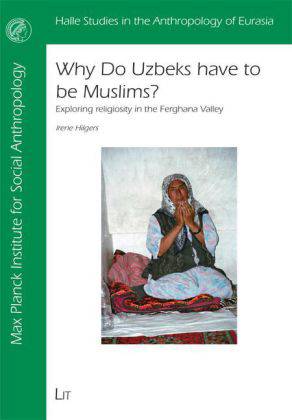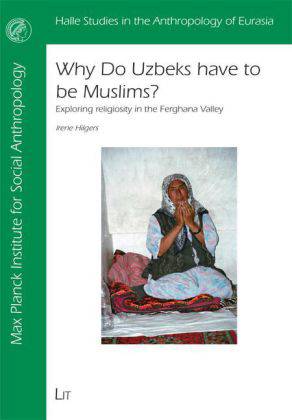
Door een staking bij bpost kan je online bestelling op dit moment iets langer onderweg zijn dan voorzien. Dringend iets nodig? Onze winkels ontvangen jou met open armen!
- Afhalen na 1 uur in een winkel met voorraad
- Gratis thuislevering in België vanaf € 30
- Ruim aanbod met 7 miljoen producten
Door een staking bij bpost kan je online bestelling op dit moment iets langer onderweg zijn dan voorzien. Dringend iets nodig? Onze winkels ontvangen jou met open armen!
- Afhalen na 1 uur in een winkel met voorraad
- Gratis thuislevering in België vanaf € 30
- Ruim aanbod met 7 miljoen producten
Zoeken
Why Do Uzbeks Have to Be Muslims?
Exploring Religiosity in the Ferghana Valley Volume 22
Irene Hilgers
€ 29,45
+ 58 punten
Omschrijving
"In this work the late Irene Hilgers analyses the revival of Islam in the public sphere in postsocialist Uzbekistan, with particular reference to its role in the construction of a new national identity. Data collected during fieldwork in 2003-2004 are contextualized with reference to the history of the Kokand Khanate and the suppression of religion during the Soviet era. Hilgers analyses current state ideology and the official structures for controlling religion, but also the continued significance of 'popular religion', as expressed at shrines and in healing rituals, and the tensions associated with 'Wahabi' currents. The tight association between Uzbek identity and Islam is also illustrated through the problems encountered by converts to Christianity. Throughout the work Hilgers deploys her rich ethnographic materials to shed fresh light on major debates concerning secularization and the nature of Soviet and post-Soviet 'modernity'.
Specificaties
Betrokkenen
- Auteur(s):
- Uitgeverij:
Inhoud
- Aantal bladzijden:
- 192
- Taal:
- Engels
- Reeks:
- Reeksnummer:
- nr. 22
Eigenschappen
- Productcode (EAN):
- 9783643101761
- Verschijningsdatum:
- 28/12/2009
- Uitvoering:
- Paperback
- Formaat:
- Trade paperback (VS)
- Afmetingen:
- 165 mm x 241 mm
- Gewicht:
- 353 g

Alleen bij Standaard Boekhandel
+ 58 punten op je klantenkaart van Standaard Boekhandel
Beoordelingen
We publiceren alleen reviews die voldoen aan de voorwaarden voor reviews. Bekijk onze voorwaarden voor reviews.











